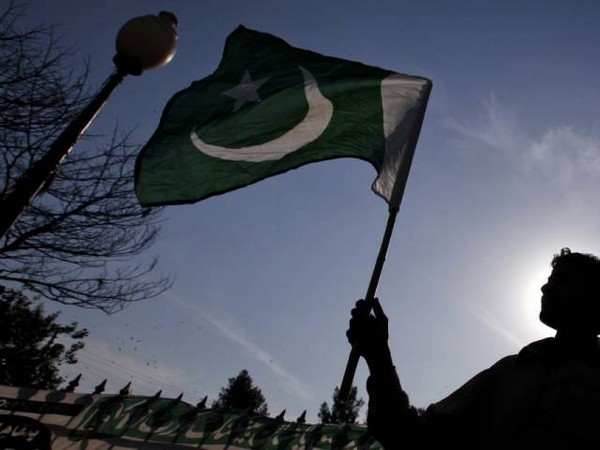Pakistan's retired general convicted of espionage pardoned by new military leadership

- Country:
- Pakistan
A retired general convicted of sharing ''classified information'' with foreign spies has been pardoned by Pakistan's new military leadership and released from prison, a media report said on Monday.
However, Lt Gen (retd.) Javed Iqbal still plans to continue challenging the guilty verdict awarded to him by an army tribunal until he is honourably acquitted, his lawyer was quoted as saying by the Dawn Newspaper.
Lt Gen (retd.) Iqbal was released from Rawalpindi’s Adiala Jail on December 29 after the new military leadership reviewed his case.
His lawyer Omer Farouk Adam said the new military leadership had “realised the injustice done to him” by the previous command.
Lt Gen (retd.) Iqbal was awarded 14 years rigorous imprisonment by Field General Court Martial (FGCM) — a life term in Pakistan — on May 30, 2019, after being convicted of “espionage/leakage of sensitive information to foreign agencies prejudicial to the national security”, but eventually came out of jail after four years.
The 14-year sentence was commuted by the appellate authority to seven years in May 2021.
Later, then Army chief Gen Qamar Javed Bajwa further reduced the sentence by another two and a half years just before his departure from GHQ in November last year.
The jailed general was, therefore, scheduled to be freed on May 29 this year, but the new Army chief Gen Asim Munir waived off the sentence altogether, paving the way for his early release.
Iqbal has been pursuing a separate petition in the Lahore High Court since 2021 and appealed for setting aside his conviction by the FGCM for being “Coram non judice, without jurisdiction, and suffering from mala fides including malice in law and fact”, according to a copy of his appeal that is being heard by the court.
His counsel, Adam, says the court has held nearly a dozen hearings without much headway.
He vows to press ahead with the appeal and is hopeful that his client will eventually get justice.
The next hearing in Iqbal’s appeal is set for the end of this month.
Commenting on the pardoning of Iqbal by Gen Munir, the lawyer said: “It’s a good start, but not acceptable. He must be acquitted of all malicious and malafide allegations.'' Adam said his client was determined to continue fighting for an “honourable acquittal”.
Iqbal’s conviction on espionage-related charges and sentencing was almost unprecedented for a three-star retired military officer, and more so for someone who had held key appointments, including director-general of military operations, adjutant-general, and corps commander.
He had also led the military’s internal probe into the US special forces raid in Abbottabad in 2011 when Al Qaeda chief Osama Bin Laden was killed.
While announcing the sentence, the army had neither disclosed what secrets he had allegedly divulged to foreign spies nor identified the foreign agency.
Lt Gen (retd.) Iqbal’s engagements with Americans that ultimately landed him in trouble allegedly started when he was approached by Ryan Kessler from Gaming Company Take-II during a visit to the US after retirement and engaged as a consultant in 2016.
However, his involvement ended after he objected to plans for showing US forces thwarting an attempt to smuggle nuclear material through Karachi port.
He is alleged to have subsequently come in contact with two other individuals, one from the Harvard Group and someone who worked for the US National Security Adviser’s office.
The latter got in touch with him in 2018, and the general is said to have conveyed these engagements to Gen Bajwa.
He was never granted a subsequent audience with the army chief and was taken into custody on December 5, 2018.
After investigations, Gen Iqbal was charged under Section 3 of the Official Secrets Act and Section 59 of the Army Act, 1952, and court martial proceedings were initiated against him.
The allegations against him included sharing his career profile; disclosing the SPD deals with fissile material; explaining the selection process for the appointment of the army chief; talking about Pakistani role in military operations in Afghanistan; sharing information about negotiations with Russia for the acquisition of military equipment, especially gunship helicopters; giving details of the deployment of an infantry brigade at Gwadar for the security of Chinese and CPEC and army’s involvement in CPEC security.
In his communications, he was also said to have told the Americans that UAE and Saudi Arabia provided funds for the rehabilitation of militancy-hit areas of Khyber-Pakhtunkhwa province; and that US assistance was going to the government instead of directly reaching the armed forces.
Moreover, he allegedly informed them how the military funded its welfare programmes for veterans through Fauji Foundation and Army Welfare Trust, the two organisations run by the military.
The army has not commented on the story, according to the paper.
(This story has not been edited by Devdiscourse staff and is auto-generated from a syndicated feed.)










